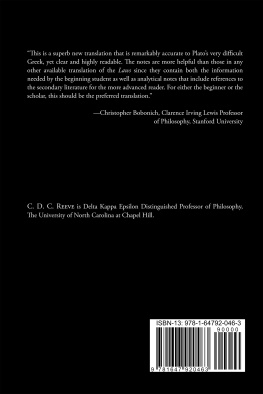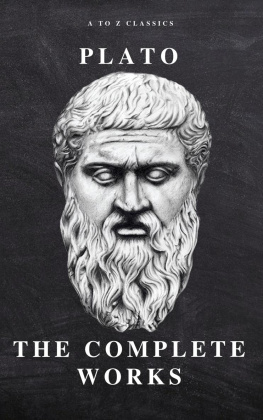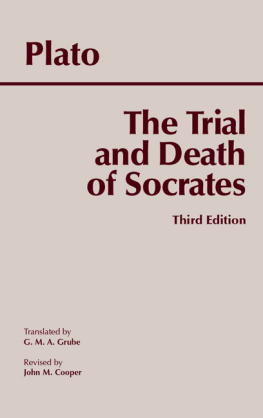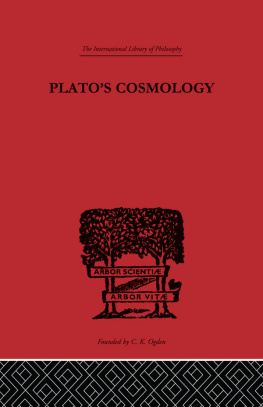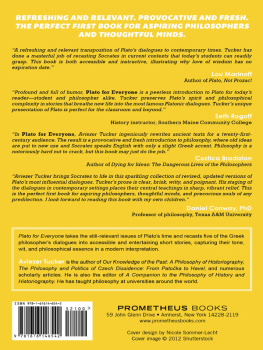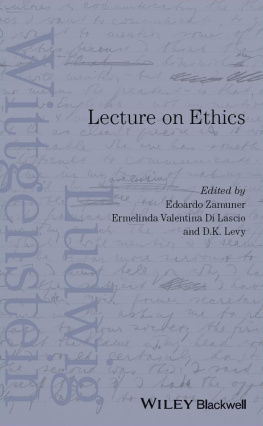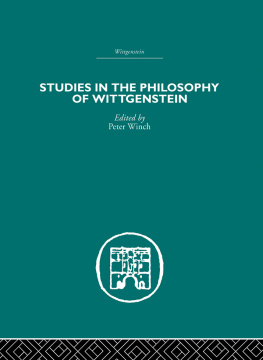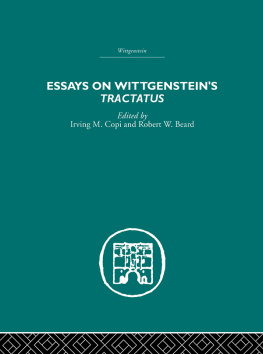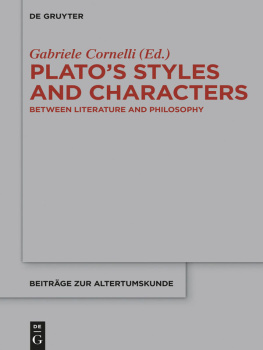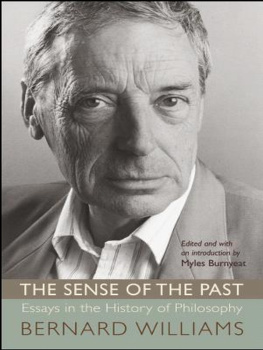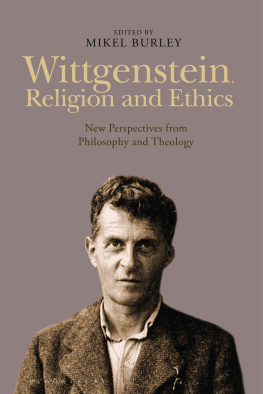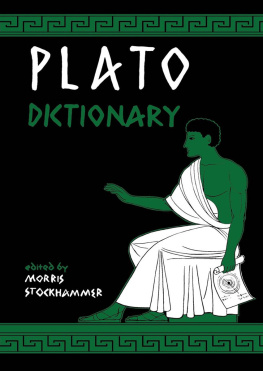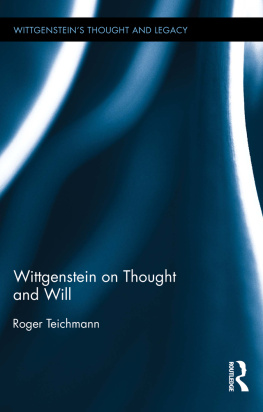Title Page
FROM PLATO TO WITTGENSTEIN
Essays by G.E.M. Anscombe
Edited by Mary Geach and Luke Gormally
Publisher Information
Copyright in this collection M.C. Gormally, 2011
The moral rights of the authors have been asserted.
No part of any contribution may be reproduced in any form without permission, except for the quotation of brief passages in criticism and discussion.
Originally published in the UK by Imprint Academic
PO Box 200, Exeter EX5 5YX, UK
Originally published in the USA by Imprint Academic
Philosophy Documentation Center
PO Box 7147, Charlottesville, VA 22906-7147, USA
Digital version converted and published in 2011 by
Andrews UK Limited
www.andrewsuk.com
Cover Photograph:
St Salvators Quadrangle, St Andrews by Peter Adamson from the University of St Andrews collection
Dedication
For
Dermot Fenlon C.O.
Faithful pastor, scholar, and friend of Elizabeth Anscombe.
Preface
The present volume is the third in a series designed to collect in book form hitherto uncollected and unpublished papers by the late Professor Elizabeth Anscombe. The title of the present collection of papers, From Plato to Wittgenstein , mimics the title of the first volume of her Collected Philosophical PapersFrom Parmenides to Wittgenstein : both volumes collect papers in which Anscombe engages analytically and argumentatively with the thought of major philosophers of the past, including the thought of her teacher and friend Ludwig Wittgenstein. The Collected Philosophical Papers were published in 1981, twenty years before her death. In those intervening years she went on to publish over 50 papers and a small number of extended reviews of the work of other philosophers. It is interest in this body of published work which has partly inspired this new series of collected papers. But the inspiration for this enterprise also derives from research among Anscombes unpublished papers and notebooks, a very large body of material which she was not assiduous in keeping in orderly fashion and which still remains to be adequately organised. An initial ordering of this material has, however, uncovered a number of papers, some typescripts (often with authors corrections), others handwritten manuscripts, which have claims to see the light of publication. There are eight papers in the present collection which have not been previously published in English, though versions of two have appeared in Spanish translation.
One question reviewers might reasonably ask is: Would Anscombe herself have published this material? In some cases it seems likely that she was not offered the occasion to do so. But in other cases it is evident that she would have considered the paper incomplete. The paper On Piety, or: Platos Euthyphro in the present volume is a case in point. But anyone with an interest in the debates about that Platonic dialogue will surely find Anscombes incomplete paper on it engaging. And still other papers represent extended analyses and argumentative engagements from which Anscombe subsequently extracted brief and illuminating papers which she did publish. In the present volume the lengthy paper Hume on causality: introductory is the matrix from which Anscombe extracted Hume and Julius Caesar and Whatever has a beginning of existence must have a cause: Humes Argument Exposed. It is published here as an example of the scrupulous and attentive study she devoted to major philosophers which is abundantly evident in her unpublished papers. There one finds in notebooks and papers extensive work on a number of Platonic dialogues (the Meno , the Phaedo , the Theaetetus and the Sophist ), on Anselms Proslogion argument and on his De Veritate , on Lockes Essay concerning Human Understanding , on Berkeley, on Hume on causality and on his Dialogues concerning Natural Religion , on Frege and Russell, andvoluminouslyon themes from Wittgenstein. Interestingly, there is very little on Aristotle and Aquinas.
In view of cavils about editorial policy from a small number of reviewers, a brief explanation of the policy adopted in distributing papers between different volumes in this series seems called for. The principal focus of the first volume, Human Life, Action and Ethics was on ethics. As explained in the preface to that volume, it began with a number of papers on the nature and proper valuation of human life because Anscombes reflections on those topics were fundamental to what she had to say about morality. So also was her understanding of human action and practical reason, the topics of the second part of that volume. The focus of the second volume, Faith in a Hard Ground , was on topics which engaged Anscombes philosophical attention because of her Catholic faith. The volume contained papers whose subject matter materially coincided with the subject matter of papers in the first volume. But the treatment of those topics in the second volume was more evidently inspired by the challenge of Catholic teaching or influenced by its content. It is to be hoped that the rationale for the selection of papers in the present volume is fairly perspicuous, and that reviewers will not find editorial policy a reason for failing to engage with Anscombes thinking.
As in previous volumes, footnotes flagged in Arabic numerals are the authors, those flagged in symbols ( , , , etc) have been supplied by me. In the initial footnote to each paper, where information is provided about the source and date of the paper, the distinction between manuscript and typescript, as the names suggest, is between handwritten and typed documents. Insertions in square brackets in quotations from other authors were made by Anscombe; insertions in square brackets in her text have been made by me, usually to supply fairly obviously missing words.
I am indebted to the advice of two scholars in particular in deciding on the selection of papers for the present volume. Nicholas Denyer of Trinity College, Cambridge (and former graduate student of Anscombe), offered advice on the inclusion of the Plato papers. Anselm Mller, former Professor of Philosophy of the University of Trier (and also sometime graduate student of Anscombe) not only advised on the inclusion of a number of the Wittgenstein papers, but also helped in answering questions about the texts of some of those papers.
The whole project of publishing these volumes of Elizabeth Anscombes papers could not have made the progress it has had John Haldane not welcomed the volumes into the series he edits. His sustained and sustaining interest in the project has been a constant encouragement to make progress with it for which I am very grateful.
Gratitude is again owing to the Earhart Foundation for the grants given to me in 2009 and 2011 to work on archiving Elizabeth Anscombes papers and publishing a selection of her uncollected and unpublished papers. Much of my time has been spent on a preliminary organisation of a somewhat disorganised mass of papers. I hope to continue to make progress with this work and to produce a further volume of papers in due course.
My wife and I are at one in wishing to dedicate this volume to Fr Dermot Fenlon, a noble priest and fine scholar, who was a friend of Elizabeth Anscombe.
Luke Gormally
June, 2011
The two previously published volumes are: Human Life, Action and Ethics. Essays by G E M Anscombe , edited by Mary Geach and Luke Gormally (Exeter, UK & Charlottesville, VA, USA: Imprint Academic, 2005); Faith in a Hard Ground. Essays on Religion, Philosophy and Ethics by G E M Anscombe , edited by Mary Geach and Luke Gormally (Exeter, UK & Charlottesville, VA, USA: Imprint Adademic, 2008).
Originally published in 1973 and 1974, and reprinted in G E M Anscombe, From Parmenides to Wittgenstein. Collected Philosophical Papers, Volume I (Oxford: Basil Blackwell, 1981), pp. 8699.


